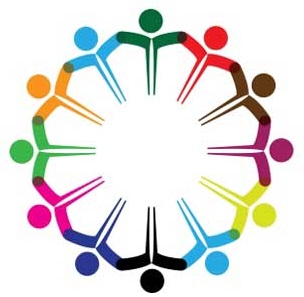This summer, the VUL is pleased to announce that we will add new support for transgender and gender non-binary players.
In this article, you may encounter language and terms that are new to you. Please see the Glossary at the end for an explanation of those terms.
Background
 As highlighted in our recent article about our new Gender Balance rule, last year the VUL completed a new 5-year Strategic Plan, and one key element of the plan is a focus on inclusivity. Our goal is to do a better job of including those who might otherwise be excluded or marginalized from participating in the ultimate community.
As highlighted in our recent article about our new Gender Balance rule, last year the VUL completed a new 5-year Strategic Plan, and one key element of the plan is a focus on inclusivity. Our goal is to do a better job of including those who might otherwise be excluded or marginalized from participating in the ultimate community.
One particular area we wanted to explore was how to be more inclusive of trans players as they register and play in the VUL. To that end, we engaged the services of QMUNITY, BC’s queer, trans and Two-Spirit resource centre. We asked them to review our programs and services to identify any problematic or trans-exclusive policies or procedures, and then provide recommendations to address them. This article summarizes the result of that work.
Perspective
Western society’s understanding of gender identity has changed and evolved significantly over the last few decades. As highlighted by QMUNITY to us: “Most significant to considering policy changes is understanding the complexity of gender identity. While we have two common words for gender - man and woman or boy and girl – this does not mean that other genders do not exist. In fact, a 2015 study out of the National Center for Transgender Equality, which surveyed 28,000 trans-identified Americans, reported that of the 28,000 respondents, nearly 1/3 identified as non-binary – neither male nor female. We may hear terms like genderqueer, pangender, or non-binary itself as words people are using to describe their gender identity outside of or beyond the widely-accepted binary.”
We also seek to hold space for indigenous peoples, culture and language. First Nations cultures long ago had an understanding of individuals whose gender was beyond the binary – today referred to as Two-Spirit. The language of our updated policies will also recognize this tradition.
Approach
Other ultimate organizations have developed policies to incorporate transgender players. USA Ultimate and WFDF have adopted policies that focus on hormonal treatments and medical tests for evaluation. Given the recreational and community-based nature of our league, we are taking a different approach.
Legally in BC, someone is the gender they have stated they are. Individuals no longer require legal name changes, certain surgeries, psychologist's notes, etc. to be acknowledged as their own felt gender. QMUNITY believes that each individual is an expert in their own identity and that each individual ought to be empowered to identify, label and define themselves in ways that are healthiest and happiest for them.
The VUL is adopting this perspective for our programs. Players will be able to choose how they participate in VUL leagues & events based on their own gender identity at that time, regardless of sex characteristics or where they may be in any transition between genders. We trust and will rely on Spirit of the Game to avoid any abuse of this approach by a player merely to gain a competitive advantage on the field.
Implementation
This summer we will make the following policy and website changes to support this approach. The exact timeline depends on when the website changes can be completed; we will update captains and this article when the changes are complete!
Website content
We’ll remove language from pages that reinforces binary genders (e.g. men & women) and replace that with more inclusive language (e.g. players, people, etc).
User Profiles
We’ll add additional options to the Gender field in user profiles, such as “Another Gender” and “Prefer Not To Say”. In addition, that field will no longer be shown publicly. It will only be used internally by the VUL to help us develop programs and services for all members.
We’ll add a new profile question to be used for games: “Based on your gender identity, which gender would you be most comfortable matching up against?” There will be two options: Men and Women. We expect that transgender men will select Men, transgender women will select Women, and other genders will select the gender they are most comfortable with at that time. The answer to this question (and the Gender identity field) can be changed at any time.
League Play
All website features that previously used the Gender field will switch to use this new Gender Matching field. These include team rosters, game attendance stats, and Matchmaker. These features will now group players by the gender they are comfortable matching against, as opposed to their gender identity. This solution will allow us to recognize and welcome players who do not identify as one of the two binary genders, while also allowing the matching process during games to be manageable.
On the field, we believe there’ll be little difference from how games would work without these changes. Using the new Gender Balance rule, one endzone will pick the gender ratio, and the other team will match. Captains can resolve any uncertainty about Gender Matches as they sometimes do already. Overall, we want people to participate equally in the sport and to play it safely and enjoyably, and we trust VUL members to make good decisions. If questions arise about what to do, teams can use Spirit of the Game and/or the Captain’s Clause to resolve it at that time, and Captains can let us know afterwards what occurred so that we can update our guidelines, if needed.
Other Services
Women-only clinics and leagues will be updated to highlight that trans women are welcome to attend.
For leagues where individuals can register on their own, we usually offer Duo and Trio options where 2 or 3 people can register together. To increase the number of women playing ultimate (and help ensure we have enough women to form teams), we offer those options at a discount and require one of the players in each group to be a woman. Going forward, those options will reference the player’s Gender Matching choice rather than their gender identity.
Lastly, we will remove gendered language from our annual awards. Instead of offering male and female awards, we will offer awards to two people of different genders.
Feedback
We believe our approach strikes a good balance, and we also acknowledge it may not be a perfect for everyone. If you have any questions or feedback, you can:
- contact the VUL
- contact our QMUNITY contact, Joel Harnest, their Education & Training Coordinator, via education@qmunity.ca
- or comment in our Forum post.
To all members, we hope you'll join us in working to provide a safe and welcoming environment for everyone to play ultimate!
Glossary
A summary of terms from QMUNITY.
- Cisgender: A term used to describe someone whose gender identity matches their sex assigned at birth.
- Gender Binary: The view that there are only two distinct, opposite and static genders (man/woman; masculine/feminine; male/female; boy/girl) to identify with and express. While many societies view gender through this lens and consider this binary system to be universal, a number of societies recognize more than two genders.
- Gender Identity: One's internal and psychological sense of oneself as a man, woman, in between, both or neither. Gender identity is explicitly different than one's sex assigned at birth (which is based on biological considerations including genitalia and genetic make-up).
- Gender Expression: How one outwardly expresses gender. For example: name and pronoun choice; style of dress; voice modulation; etc. How one expresses gender might not reflect one's actual gender identity.
- LGBTQ2S+: Acronym that stands for Lesbian, Gay, Bisexual, Trans, Queer & 2-Spirit. The + denotes that there are many other identities and communities within the LGBTQ2S+ population that are not represented in these six words. Making fun of the length of this acronym can have a trivializing or erasing effect on the group(s) that longer acronyms seek to actively include.
- Non-Binary: May describe someone who identifies as trans, and whose gender identity is neither male nor female, but outside of or beyond the binary. i.e. genderqueer; genderfluid; gender non-conforming; trans non-binary; etc.
- Trans: An umbrella term that describes a wide range of people whose gender identity and/or expression differs from conventional expectation based on their assigned biological birth sex. Some of the many people who may or may not identify as trans include people on the male-to-female and female-to-male spectrums; people who identify/express their gender outside of the male/female binary; people whose gender identity/expression is fluid; and many more. Identifying as trans is something that can only be decided on by an individual for themselves and does not depend on criteria such as surgery or hormonal therapy.
- Trans Man: May describe someone who identifies as trans and who identifies as a man.
- Trans Woman: May describe someone who identifies as trans and who identifies as a woman.
- Two-Spirit (2-Spirit): A term used by many Indigenous societies in North America to describe people with diverse gender identities, expressions, roles and sexual orientations. Two-Spirit people have been and are viewed differently in different Indigenous communities but were historically revered and understood as blessings bestowed unto communities. More recently, as a result of colonization and homophobia, Two-Spirit individuals have experienced marginalization and oppression within settler and indigenous communities.
